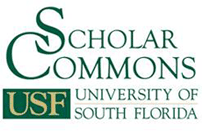Presentation Type
Poster
Abstract
Background: Critical to the success of cancer immunotherapies is the identification of appropriate target antigens. Cancer-testis antigens (CTAs) are ectopically expressed immunoprivileged antigens transcriptionally controlled by DNA methylation which have utility as immunotherapeutic targets. 5-azacytidine, an analogue of cytidine, has been shown to induce expression of CTAs in cancer. During the experiment, we analyzed matched samples from 42 myelodysplastic syndrome patients receiving an oral regimen of 5-azacytidine to determine if an anti-CTA immune response was generated.
Methods: Immunoglobulin G (IgG) responses to a panel of 29 CTAs including NY-ESO1, Mage-1, and SSX2 were analyzed by ELISA, Western Blot, and SEREX HTI procedures to identity novel responses. A standardization of human IgG, as well as a healthy donor control was used to determine the validity of identified responses.
Results: We have confirmed prior studies which have identified immune responses to various CTAs in MDS patients. We will present novel findings including the induction of IgG responses in the responses to oral 5-azacytidine.
Conclusions: Our findings suggest that CTAs could be further pursued as an immunotherapeutic target in myelodyplastic syndrome and that treatment with 5-azacytidine could be exploited to modulate antigen expression in combination with immunotherapeutic approaches.
Categories
Biomedical Sciences
Research Type
Research Assistant
Mentor Information
Jason Dubovsky
Included in
Inducible Expression of Cancer Testis Antigens Following Treatment with a DNA Methylation Inhibitor
Background: Critical to the success of cancer immunotherapies is the identification of appropriate target antigens. Cancer-testis antigens (CTAs) are ectopically expressed immunoprivileged antigens transcriptionally controlled by DNA methylation which have utility as immunotherapeutic targets. 5-azacytidine, an analogue of cytidine, has been shown to induce expression of CTAs in cancer. During the experiment, we analyzed matched samples from 42 myelodysplastic syndrome patients receiving an oral regimen of 5-azacytidine to determine if an anti-CTA immune response was generated.
Methods: Immunoglobulin G (IgG) responses to a panel of 29 CTAs including NY-ESO1, Mage-1, and SSX2 were analyzed by ELISA, Western Blot, and SEREX HTI procedures to identity novel responses. A standardization of human IgG, as well as a healthy donor control was used to determine the validity of identified responses.
Results: We have confirmed prior studies which have identified immune responses to various CTAs in MDS patients. We will present novel findings including the induction of IgG responses in the responses to oral 5-azacytidine.
Conclusions: Our findings suggest that CTAs could be further pursued as an immunotherapeutic target in myelodyplastic syndrome and that treatment with 5-azacytidine could be exploited to modulate antigen expression in combination with immunotherapeutic approaches.

